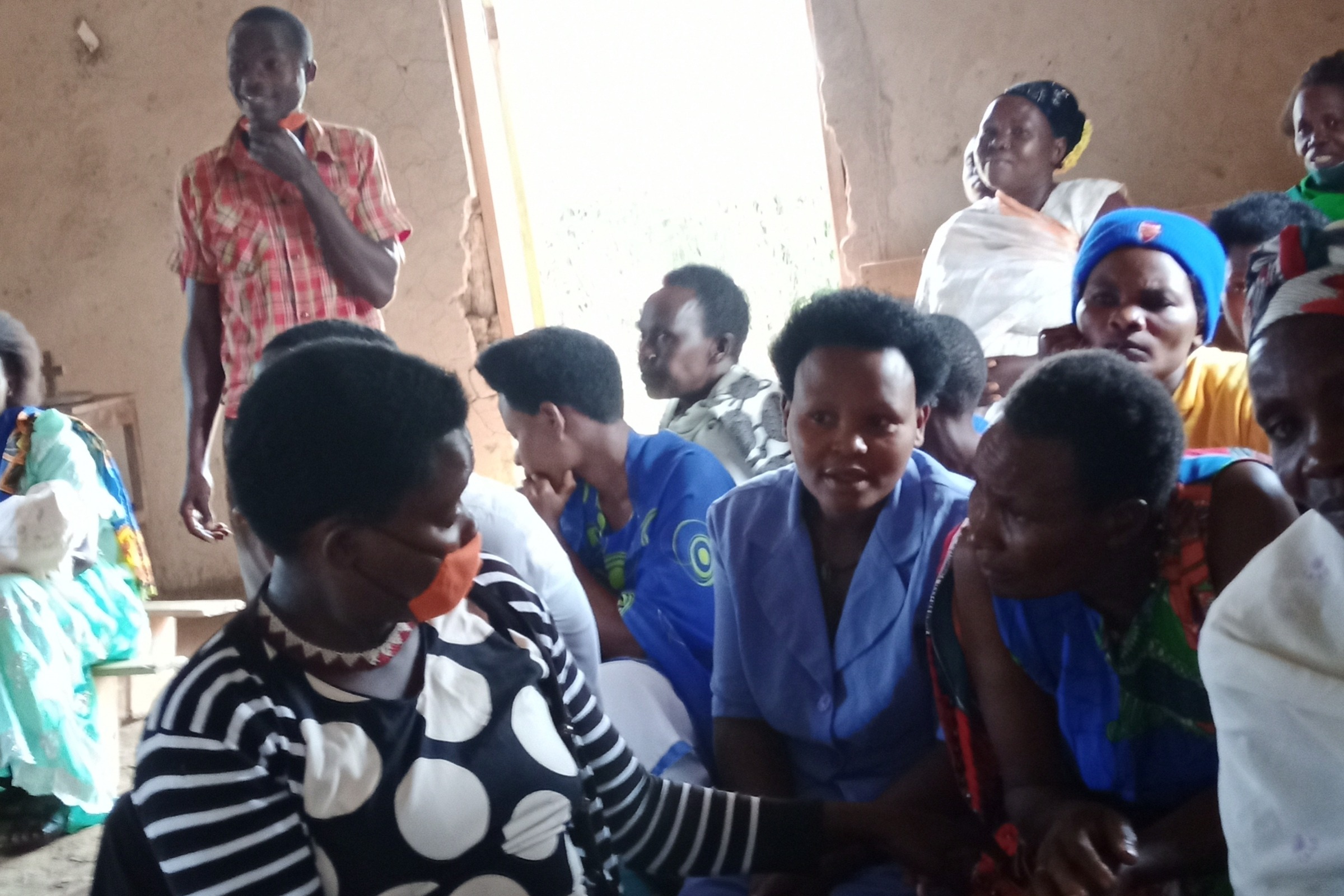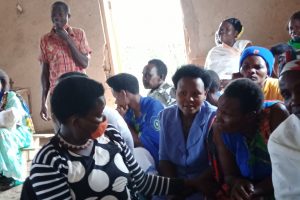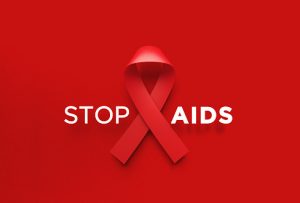In Uganda, the population of youth aged (10-25 years) is 21% (7.3 million); 78% (20 million) are aged below 30 years, and women of reproductive age (15-49 years) are estimated to be 7.3 million. According to the Annual Health Sector Performance Review Report 2013/2014, the lead program indicators are still below the HSSIP III targets. For example, the proportion of health facilities with no stock-outs of essential RH medicines and health supplies currently stands at 70%, the proportion of health facilities that are adolescent-friendly is 75% and the percentage of health facilities with basic and comprehensive emergency obstetric care is still low at 50%. The proportion of pregnant women accessing the comprehensive PMTCT package is 80% but varies depending on the geographical location of districts. The unmet need for family planning is estimated at 20% and the rate of adolescent pregnancy is 15%. It should be emphasized that the right to sexual and reproductive health rights program is important as it aims at reducing maternal mortality ratio, perinatal, and total fertility rate, and improving sexual and reproductive health of the people which are all key elements for achieving the SDGs 1, 3 and 5.
The country also has a high number of teenage pregnancies, for example among girls aged 15-19 years, 25 percent have started childbearing, with higher rates in the rural areas according to the Uganda Demographic and Health Survey 2016 report. These rates are worsened by the COVID-19 pandemic lockdown and the closure of schools in March 2020- December 2021. Different studies and media reports show an increased rate of defilement, pregnancies and early marriages. For instance, in September 2021, the Kalungu District Reproductive Health care status report indicated that 4,000 pregnancies by girls below 19 years are contributing an average of 18% of overall statistics of expecting mothers who seek antenatal services in the area, a figure that is worrying. The Daily Monitor newspaper reported that 130 underage girls in the Lwengo district were married, among others. These are the reported cases. several others remain unreported.
Many of these pregnancies are a result of defilement. Some are due to engagement in early sexual relationships, sometimes with peers, without accurate information on how to avoid pregnancy, beliefs in ineffective myths, fear of seeking Sexual and Reproductive Health (SRH) services or denial of access when they do.
The immediate consequences of teenage pregnancies are several but the high mortality rate during birth for teenage mothers, plus frequently conducting unsafe abortions are a serious issue. Other effects, some long term, are the interruption in the girls’ education. Many girls did not return to school, a few later joined vocational education and even fewer returned to the formal education structures they were part of. Other possible effects include contracting HIV, in addition to unemployment and thus lower income. These limit their ability to provide good nutrition and care for their children, thus negative trickle-down effects.
UTNU is committed to promoting reproductive health and rights, with a focus on increasing access to high-quality SRH information and services delivery. We place a special emphasis on engaging and serving women, youth and believe that young people have the best potential for building and sustaining a movement of change. With adequate information about SRH, pregnancy and its negativities among younger women, they would know how to protect themselves and avoid pregnancy in the first place or other diseases like HIV/AIDS, where possible. More so, ensuring the availability of services to those who make informed decisions to use them, would be helpful. We work with reproductive health advocates, researchers, and providers to:
- Advance quality sexual and reproductive health information, services, and rights.
- Improve the quality of comprehensive sexuality education, voluntary contraception and related care.
- Strengthen service delivery, build leadership and advocacy capacity, and shift social and cultural norms to allow women and youth to make their own reproductive health care decisions.
- Forge partnerships with global research advocacy organizations, especially networks led by women and youth, and to create positive and effective messages about reproductive health and rights at the regional and global levels.
The program aims at empowering women in rural areas of 9 districts in the Greater Masaka region (Kyotera, Rakai, Lwengo, Lyantonde, Ssembabule, Bukomansimbi, Kalungud, Kalangala and Masaka districts). The direct beneficiaries are women depending on agriculture, women that have encountered Sexual and Gender-Based Violence (GBV), People Living with HIV (PLWHIV), People Living With Disabilities (PLWD), Commercial Sex Workers (CSW). The project will advocate for improved Sexual Reproductive Health Services and Rights service delivery. Beneficiaries will be empowered to take part in planning, budgeting and monitoring SRH services delivery in their areas.





